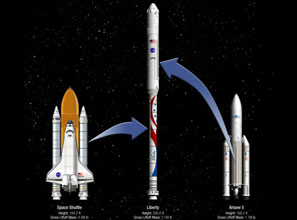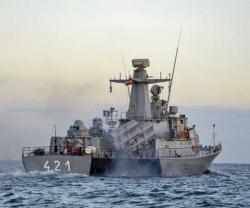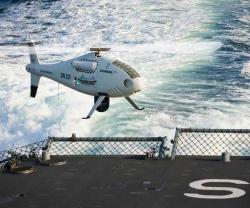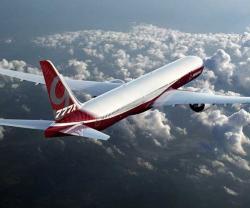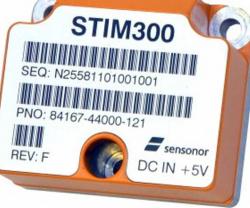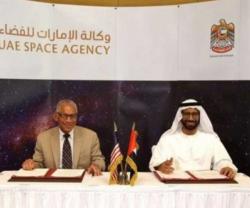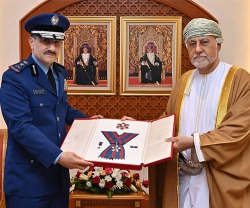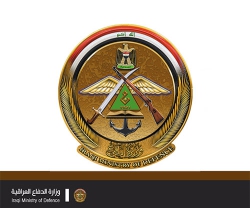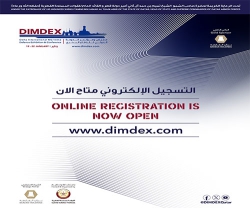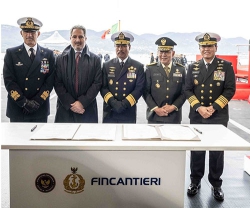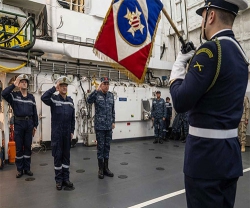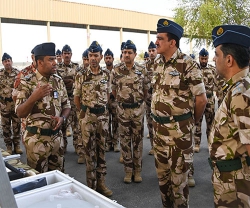ATK’s Liberty Launch System Completes ISD Review
25.01.2012 North America
ATK's Liberty program successfully held its Launch System Initial Systems Design (ISD) Review, which completes the third of five milestones in the company's unfunded Space Act Agreement (SAA) with NASA for the Commercial Crew Development Program.
The SAA enables NASA and the Liberty team to share technical information related to the Liberty Transportation System during the Preliminary Design Review phase of the program. During this meeting ATK presented the status of Liberty's systems level requirements, preliminary design and certification process.
"This unfunded partnership with ATK on its Liberty systems brings expertise from around the globe and we are glad to contribute our more than 50 years of human spaceflight experience to this effort," said Ed Mango, NASA's Commercial Crew Program manager.
"With the SAA in place we have been able to work closely with NASA's Commercial Program and receive valuable feedback as we develop the Liberty Transportation System," said Kent Rominger, ATK Vice President and Program Manager for Liberty.
"We continue to develop Liberty with the goal of providing the safest, most reliable, cost-effective and capable launch vehicle for crew transport," he added.
The current SAA continues through at least March 2012. The two milestones met earlier included a Requirements Status Briefing and a Technical Interchange Meeting for the Liberty Transportation System.
The ISD Review included Liberty team members from ATK, Astrium (an EADS Company), their subcontractors, and representatives from NASA's Commercial Crew Office at Kennedy Space Center and NASA representatives from other centers.
Prior to the signing of the SAA, the Liberty team successfully conducted a System Requirements Review and a System Development Review. All efforts to date have been supported exclusively by internal funding.
The commercial crew Liberty Transportation System combines two of the world's most reliable propulsion systems. ATK is the prime, providing the human-rated five-segment solid rocket motor as the first stage. Astrium is providing the core stage from the Ariane 5 rocket, including the Vulcain 2 engine, as Liberty's upper stage. The launch vehicle has the capability to lift 44,000 pounds to low-Earth-orbit.
"Liberty not only has the highest pounds-to-orbit of any other vehicle currently working under commercial agreements, it also is the only vehicle that was originally designed for human rating," said Rominger.
The five-segment motor is derived from the human-rated Space Shuttle and Ares solid rocket motors, and the core stage for the Ariane 5 was originally slated to lift the Hermes Space Plane. The current goal is to begin test launches in 2015, with a crewed flight in 2016.
The SAA enables NASA and the Liberty team to share technical information related to the Liberty Transportation System during the Preliminary Design Review phase of the program. During this meeting ATK presented the status of Liberty's systems level requirements, preliminary design and certification process.
"This unfunded partnership with ATK on its Liberty systems brings expertise from around the globe and we are glad to contribute our more than 50 years of human spaceflight experience to this effort," said Ed Mango, NASA's Commercial Crew Program manager.
"With the SAA in place we have been able to work closely with NASA's Commercial Program and receive valuable feedback as we develop the Liberty Transportation System," said Kent Rominger, ATK Vice President and Program Manager for Liberty.
"We continue to develop Liberty with the goal of providing the safest, most reliable, cost-effective and capable launch vehicle for crew transport," he added.
The current SAA continues through at least March 2012. The two milestones met earlier included a Requirements Status Briefing and a Technical Interchange Meeting for the Liberty Transportation System.
The ISD Review included Liberty team members from ATK, Astrium (an EADS Company), their subcontractors, and representatives from NASA's Commercial Crew Office at Kennedy Space Center and NASA representatives from other centers.
Prior to the signing of the SAA, the Liberty team successfully conducted a System Requirements Review and a System Development Review. All efforts to date have been supported exclusively by internal funding.
The commercial crew Liberty Transportation System combines two of the world's most reliable propulsion systems. ATK is the prime, providing the human-rated five-segment solid rocket motor as the first stage. Astrium is providing the core stage from the Ariane 5 rocket, including the Vulcain 2 engine, as Liberty's upper stage. The launch vehicle has the capability to lift 44,000 pounds to low-Earth-orbit.
"Liberty not only has the highest pounds-to-orbit of any other vehicle currently working under commercial agreements, it also is the only vehicle that was originally designed for human rating," said Rominger.
The five-segment motor is derived from the human-rated Space Shuttle and Ares solid rocket motors, and the core stage for the Ariane 5 was originally slated to lift the Hermes Space Plane. The current goal is to begin test launches in 2015, with a crewed flight in 2016.
Previous PostUS Deploys BAMS-D Drone to Monitor Hormuz Strait
Latest news
Latest events
Doha International Maritime Defence Exhibition & Conference (DIMDEX 2026)
19 - 22 Jan 2026Doha - QatarUMEX – SimTEX
20 - 22 Jan 2026ADNEC Centre Abu Dhabi, - United Arab EmiratesWorld Defense Show (WDS) 2026
08 - 12 Feb 2026Riyadh - Saudi ArabiaSAHA EXPO International Defence & Aerospace Exhibition
05 - 09 May 2026İstanbul Expo Center - Turkey

